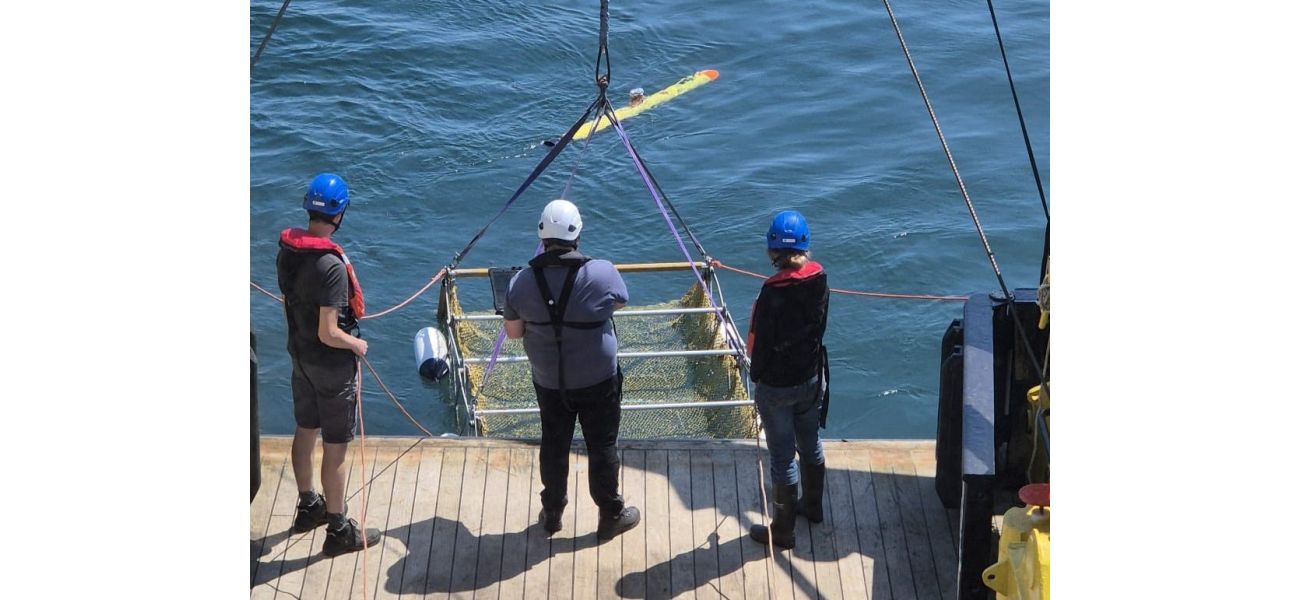Archaeologists discover ruins of 'Atlantis' in North Sea, believed to be from ancient Britain.
The seabed of the North Sea may hold clues about the UK's Stone Age predecessors.
December 25th 2024.

A team of archaeologists has recently discovered multiple artefacts from the bottom of the North Sea. This area, known as Dogger, is believed to hold the key to understanding the lives of our Stone Age ancestors in the UK. The artefacts found date back over 10,000 years and range from cutting tools to flint flakes. It's an exciting discovery that has the potential to shed new light on our ancient past.
Doggerland, once a stretch of land connecting England to mainland Europe, was thought to have been lost forever when it was flooded over 7,000 years ago. However, the recent findings have challenged this belief. Less than 20 miles off the coast of Norfolk, hundreds of artefacts have been uncovered, providing a glimpse into the daily lives of our Stone Age predecessors. Professor Vince Gaffney, from the University of Bradford, is leading the research in the North Sea and has expressed his enthusiasm for the project, stating that it has the potential to transform our understanding of Stone Age culture in Britain and its neighboring regions.
One of the most significant discoveries made by the team was the finding of flint cutting tools on the sea floor. These tools were used by our ancient ancestors for various tasks and provide valuable insight into their way of life. It's a remarkable discovery that has the potential to answer many questions about how these people lived, worked, and even died.
The collaboration between the University of Bradford, Belgium's Flemish Marine Institute, and various wind farm projects in the North Sea, as well as Historic England's Marine Planning Department, has been integral to the success of this project. By working together, they hope to gain a better understanding of our past and also contribute to the efforts of reaching net zero and combatting global warming.
It's interesting to note that Doggerland was eventually submerged due to a series of small tsunamis, as discovered by researchers in 2020. Professor Gaffney has described this event as a catastrophe, with potentially thousands of lives lost. As we continue to delve into the past, we are also reminded of the potential consequences of rising sea levels in the future.
In conclusion, the archaeological dredging in the North Sea has already yielded significant findings and has the potential to uncover even more about our ancient ancestors. It's an exciting time for the team as they continue to explore and learn more about this lost land and its people.
Doggerland, once a stretch of land connecting England to mainland Europe, was thought to have been lost forever when it was flooded over 7,000 years ago. However, the recent findings have challenged this belief. Less than 20 miles off the coast of Norfolk, hundreds of artefacts have been uncovered, providing a glimpse into the daily lives of our Stone Age predecessors. Professor Vince Gaffney, from the University of Bradford, is leading the research in the North Sea and has expressed his enthusiasm for the project, stating that it has the potential to transform our understanding of Stone Age culture in Britain and its neighboring regions.
One of the most significant discoveries made by the team was the finding of flint cutting tools on the sea floor. These tools were used by our ancient ancestors for various tasks and provide valuable insight into their way of life. It's a remarkable discovery that has the potential to answer many questions about how these people lived, worked, and even died.
The collaboration between the University of Bradford, Belgium's Flemish Marine Institute, and various wind farm projects in the North Sea, as well as Historic England's Marine Planning Department, has been integral to the success of this project. By working together, they hope to gain a better understanding of our past and also contribute to the efforts of reaching net zero and combatting global warming.
It's interesting to note that Doggerland was eventually submerged due to a series of small tsunamis, as discovered by researchers in 2020. Professor Gaffney has described this event as a catastrophe, with potentially thousands of lives lost. As we continue to delve into the past, we are also reminded of the potential consequences of rising sea levels in the future.
In conclusion, the archaeological dredging in the North Sea has already yielded significant findings and has the potential to uncover even more about our ancient ancestors. It's an exciting time for the team as they continue to explore and learn more about this lost land and its people.
[This article has been trending online recently and has been generated with AI. Your feed is customized.]
[Generative AI is experimental.]
0
0
Submit Comment





